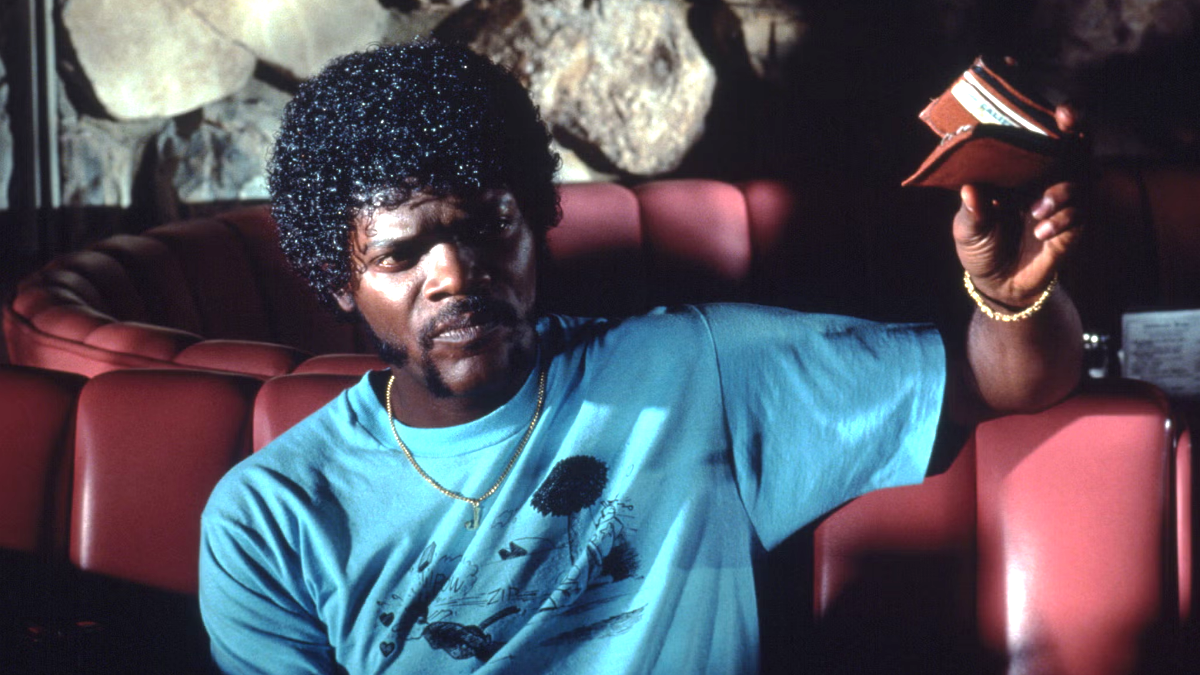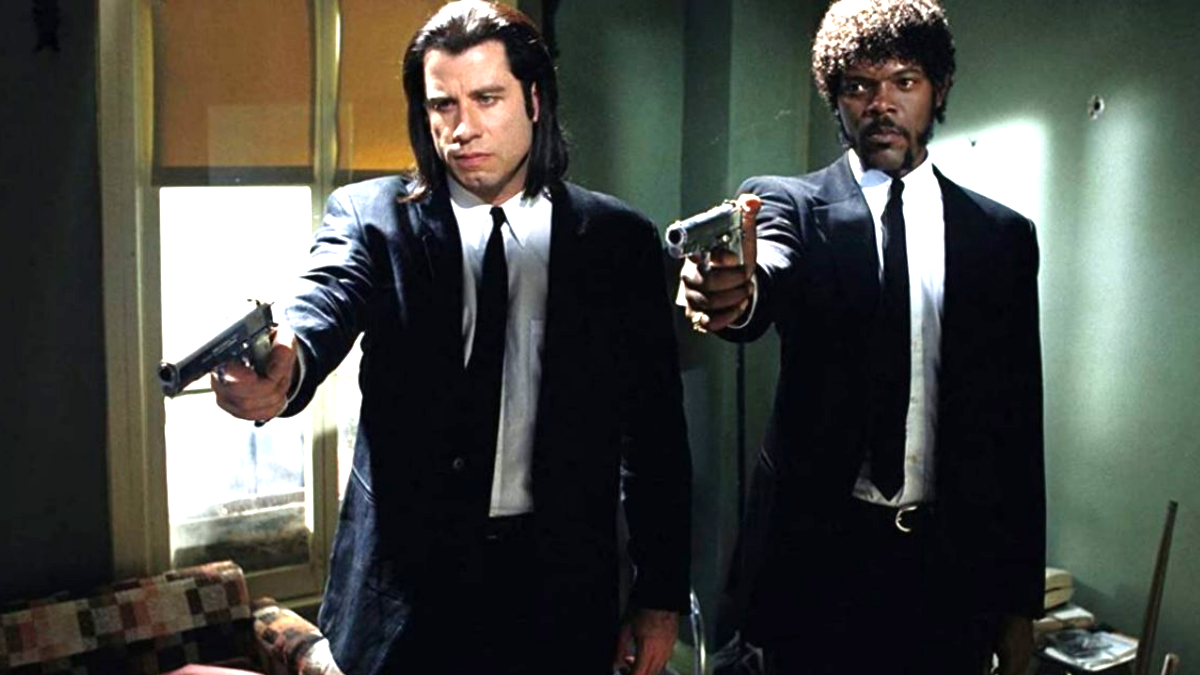Everyone who’s seen Quentin Tarantino‘s Pulp Fiction can remember the classic moment when guns-for-hire Vincent Vega (John Travolta) and Jules Winnfield (Samuel L. Jackson) are about to execute Brett – a young drug pusher who has got into the bad books of the mob boss they all work for. It’s such an iconic part of the movie that most of the trailers have some version of the scene in them.
The full quote made by Jules is so memorable that many people remember it word for word: “The path of the righteous man is beset on all sides by the inequities of the selfish and the tyranny of evil men. Blessed is he who, in the name of charity and good will, shepherds the weak through the valley of the darkness. For he is truly his brother’s keeper and the finder of lost children. And I will strike down upon thee with great vengeance and furious anger those who attempt to poison and destroy my brothers. And you will know I am the Lord when I lay my vengeance upon you.”
Jules and Vincent then proceed to fire off a countless number of 9mm rounds into the unfortunate Brett.
Later on, Jules confesses in an equally quotable monologue: “I been sayin’ that s**t for years… I never really questioned what it meant. I thought it was just a cold-blooded thing to say…”
The Biblical version

It’s fair to say that Tarantino took some liberties with the original Bible passage for dramatic effect. The quote taken directly from Ezekiel 25:17 is: “And I will execute great vengeance upon them with furious rebukes; and they shall know that I am the Lord, when I shall lay my vengeance upon them.”
According to the Bible, Ezekiel was a Hebrew prophet alive during the 6th Century B.C. who — while living in Babylonian captivity — wrote the Book of Ezekiel. It is filled with dire warnings to people who oppose Israel. The Moabites will have judgements executed upon them, the Ammonites will be enslaved, and the Edomites “shall fall by the sword.”
The 6th Century B.C. was a dark time for Hebrew people living in the Levant. Nebuchadnezzar II, the powerful Babylonian King, had overrun the state of Judah. Large numbers of Jewish people were forcibly moved to Babylonia. Ezekiel came along with a clear message of vengeance meant to spur his people into rebellion.
But it is likely Tarantino simply wanted to inject an already tense scene with a solid dose of Old Testament fury.











Published: Jul 16, 2023 01:53 pm